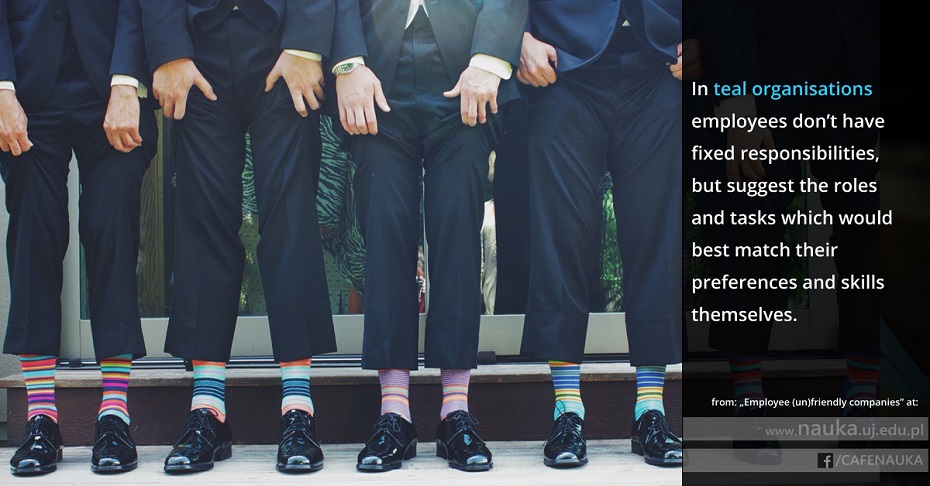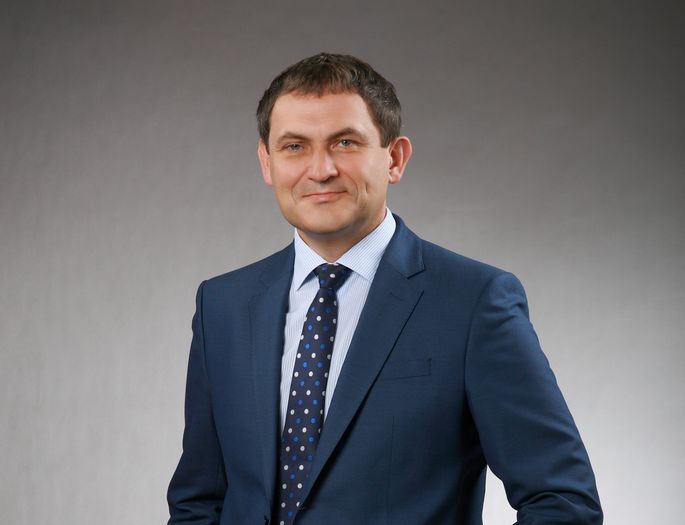
Most companies compete in developing most effective strategies of working their employees to the bone for the sake of improving work efficiency. But is this really the only way?
The area of human resources management has been subject to a sort of re-engineering. This has resulted in creating elaborate employee evaluation systems and motivation (i.e. manipulation) systems, in which managers use carrot and stick to make their employees as committed and creative as possible. Yet, according to Dr Magdalena Trzcionka of the JU Faculty of International and Political Studies, persuading employees to work harder in order to maximise the company’s profit isn’t as easy as it seems. In a talk with www.NAUKA.uj.edu.pl she discussed the model of teal organisations, based on principles contrary to classic capitalism.
Organisation as a living organism
The term “teal organisation” was introduced by Frederic Laloux, who studied organisations that function like evolving living organisms, swiftly and flexibly adapting to the changes in environment. In his 2014 book Reinventing Organisations Laloux describes the evolutionary path of organisations throughout the ages and presents the structure, processes and practices typical of teal organisations.
The three main underlying principles of a teal organisation are: self management, wholeness, and evolutionary purpose. Such organisations don’t have a permanent hierarchy (there are no bosses), and the organisation model is shaped spontaneously in the process of self-management. The employees don’t have fixed responsibilities, but suggest the roles and tasks which would best match their preferences and skills themselves. The spontaneously formed task groups determine their own goals and the ways in which they can be attained. The staff can choose to run either one project or several projects at the same time, as well as change the dynamics of work, the aims of the project and the make-up of a team. Innovations can come up from any direction at any moment. Decisions are made when a need arises.
Striving for wholness consists in holistic self-actualisation in all areas of life. Laloux claims that work becomes a tool with which we help each other to express our inner greatness and our vocation. The space for self-actualisation is based on two major pillars: model of communication without violence and shared values. Striving for wholeness is supported by various specific practices, including group coaching, individual coaching, Marshall Rosenberg’s communication without violence, fulfilling corporate social responsibility objectives, and a certain approach to processes related to human resources, such as recruitment or training.
Collective intelligence
Thirdly, the teal organisation model assumes that the purpose of an organisation evolves over time. It’s the most mysterious practice in this model of management. Teal organisations shift from traditional goals, such as survival, profit and development to nobler purposes. According to this approach, each organisation has its own energy and its own sense of direction in which it is heading. Hence, each employee should be a “sensor” capable of identifying the purpose of the organisation and allowing it to develop in the right direction. Key practices related to this ability are large group processes, meditations, visualisations, and responding to outside suggestions. These processes tend to be non-hierarchical, self-organising and based on participants’ intuition. The strategy of fulfilling evolutionary purposes naturally emerges from collective intelligence of self-governing staff. A teal organisation doesn’t manage change, because it is the change itself. It has a simplified budget, doesn’t seek perfect solutions, and doesn’t rely on quantitative planning, believing that such practices narrow down the perspective of sensing the direction in which the organisation is evolving, reduce employees’ intrinsic motivation, and, most importantly, wrongly assume that adopting a specific organisation model makes it easier to predict the future.
Teal companies are described with various metaphors: evolving organisations, living organisms, or companies with a soul. In Poland such organisation model was adopted, for instance, by Marko company, which produces labels and packaging materials, the solar cell company Brewa, mineral water producer Muszynianka, and x-tech, which helps companies find suppliers. It turns out that they have high annual growth rates, and are characterised by longevity and low staff rotation. The successes of teal organisations have shown that you needn’t be oppressive to be effective.
Original text: www.nauka.uj.edu.pl





